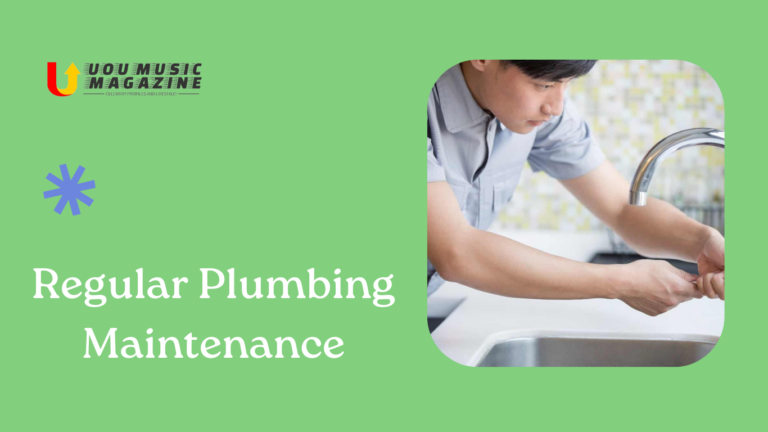Plumbing systems are a vital yet often overlooked component of any home or business. It’s easy to take them for granted until an issue arises, turning a small inconvenience into a costly emergency. Regular plumbing maintenance is essential for not only ensuring the smooth operation of the system but also for safeguarding your finances in the long term. By investing in routine checks and upkeep, homeowners can prevent expensive repairs, extend the life of their plumbing, and even reduce utility bills.
Preventing Major Expenses
One of the most significant financial advantages of regular plumbing maintenance is the prevention of major repairs. What might begin as a minor drip or slow drain can quickly escalate into a severe problem if ignored. For example, a seemingly insignificant leak can lead to extensive water damage over time, compromising the structural integrity of a home and necessitating costly repairs.
Routine inspections allow plumbers to catch these small issues early, addressing them before they become major concerns. By proactively managing minor repairs, homeowners can avoid the substantial costs associated with emergency plumbing situations and extensive damage.
Prolonging the Life of Plumbing Systems
Every component of a plumbing system, from pipes to fixtures to water heaters, has a limited lifespan. However, with regular maintenance, the longevity of these elements can be significantly extended. Simple tasks such as cleaning out drains, inspecting pipes for wear and tear, and servicing water heaters can keep the entire system functioning optimally for longer periods.
For instance, regularly flushing a water heater can prevent sediment buildup, which improves efficiency and prolongs its operational life. By keeping the plumbing system in good working order, homeowners reduce the frequency of replacements and major repairs, leading to long-term savings.
Lowering Utility Costs
Unaddressed plumbing issues, such as leaks or inefficient water heaters, can lead to a noticeable increase in utility bills. Even a small, unnoticed leak can waste a significant amount of water over time, causing water bills to spike. Similarly, a water heater that isn’t properly maintained may require more energy to function, leading to higher energy costs.
Regular maintenance helps to identify and rectify these inefficiencies, ensuring that the plumbing system operates as economically as possible. By fixing leaks, optimizing water heater performance, and ensuring overall system efficiency, homeowners can reduce their monthly utility expenses.
Preventing Water Damage and Health Risks
Water damage is one of the most destructive and expensive issues that can arise from poor plumbing maintenance. Leaks that go undetected can cause significant damage to walls, floors, and foundations, leading to costly repairs. Additionally, water damage often results in mold growth, which not only damages property but also poses serious health risks.
Regular plumbing checks can prevent these issues by ensuring that all components of the system are in good condition. Plumbers can spot early signs of potential problems, such as corrosion or improper installation, and take action before any damage occurs. This preventative approach not only saves money on repairs but also protects the health of the home’s occupants.
Avoiding the Costs of Emergency Services
Emergency plumbing situations, such as burst pipes or severe blockages, often occur without warning and require immediate attention. Unfortunately, emergency plumbing services come with a higher price tag, especially if they occur outside of regular business hours.
By scheduling regular maintenance, homeowners can significantly reduce the likelihood of these sudden emergencies. Addressing potential issues during routine inspections helps to avoid the need for costly emergency interventions, making regular maintenance a much more economical choice in the long run.
Enhancing Energy Efficiency
The efficiency of a home’s plumbing system directly impacts its energy consumption, particularly when it comes to heating water. A well-maintained water heater operates more efficiently, reducing the amount of energy required to heat water. Regular maintenance tasks, such as flushing the tank and inspecting heating elements, ensure that the water heater functions optimally, leading to lower energy bills.
Moreover, maintaining the plumbing system can prevent issues that cause increased energy use, such as leaks that force heating systems to work harder. By keeping the system in top shape, homeowners can save on both water and energy costs, contributing to overall financial savings.
Peace of Mind Through Proactive Maintenance
In addition to the financial benefits, regular plumbing maintenance provides invaluable peace of mind. Knowing that the plumbing system is well-maintained and less likely to fail gives homeowners confidence that they are protected against unexpected breakdowns and costly repairs.
This peace of mind is especially important considering the potential stress and inconvenience that plumbing problems can cause. By taking a proactive approach to maintenance, homeowners can enjoy their homes without the constant worry of hidden issues or sudden emergencies.
Conclusion: A Wise Financial Investment
Regular plumbing maintenance is a sound investment that pays off in numerous ways. From preventing major repairs and extending the life of plumbing systems to lowering utility bills and avoiding emergency service costs, the financial benefits are clear. In the long run, maintaining a well-functioning plumbing system not only protects the home and its occupants but also ensures that homeowners are making the most financially prudent decisions. By prioritizing routine maintenance, homeowners can secure their investment and enjoy the lasting benefits of a well-maintained plumbing system.

